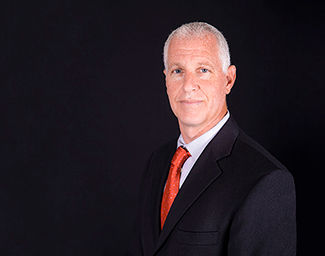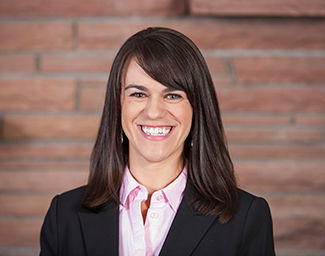Biology Research Experience for Undergraduates
The Biology program in the School of Science and Engineering is actively involved in undergraduate research. The three biology faculty, Dr. Leontine Galante, Dr. Mark Parker and Dr. Julie Woodman each have active research programs which utilize their extensive research experience to provide our undergraduate students with exposure to and training in frontline biomedical research. Exposing students to research at this stage of their academic career is an invaluable experience which provides them the tools and training to expand their critical thinking and provides the skills to give them an advantage moving into careers in research or further graduate training.
CCU has an ever growing series of research opportunities which will continue to train and prepare students for excellence while at CCU and in their future endeavors.
Dr. Leontine Galante

Dr. Galante began her own undergraduate research career at Fairfield University and from there completed her PhD research at Princeton University in the field of Cell Biology. Following her PhD she pursued a post-doctoral research fellowship in Cancer Biology at University of California San Diego. Her current research project is a continuation of this research studying how cancer suppressor genes present in the normal human genome may be upregulated to reverse some of the most common traits found in tumor cells, using a variety of cellular and molecular biology techniques. This spring semester her students presented their work at the 2018 Rocky Mountain Undergraduate Research Symposium here on CCU’s main campus. Additionally, two of her students, Nicholas Arroyo and Anna Martch, submitted and successfully received a grant from the Sigma Zeta, national science and mathematics honors society in support of their research. They will attend the national meeting of this honors society to be recognized for this achievement in the Spring of 2020.
Dr. Mark Parker

Dr. Parker performed academic research at Indiana University, the University of Denver, the University of Colorado School of Medicine and the University of Colorado at Boulder before heading up the Research and Development division of a private biotechnology firm. He has established research collaborations with researchers at the CU School of Medicine, BYU, Evangel and Point Loma Nazarene, as well as an interdisciplinary project with Dr. Nahanni Freeman from CCU’s Psychology Department. His current project with Dr. Freeman involves studying how specific testable psychological traits like impulsivity and gratification delay, are linked to specific genetic polymorphisms. Polymorphisms are essentially the different versions of a specific gene which are present within a population and cause slight variability in gene function. The current project being conducted with Dr. Freeman involves examining how different variants of a Serotonin transporter gene (SLC6A4), which consequently is the target of antidepressant drugs like Fluoxetine (Prozac), correlate to a person’s impulsivity and decision making. The goal is to determine whether or not specific variants of the gene may be predictive for specific types of behavior. This is being examined by use of standard psychological surveys in combination with DNA sampling and genotyping. The three most common variants of the gene are linked to either high or low levels of expression of the protein which consequently leads to higher or lower levels of the neurotransmitter serotonin at the synapse. This research is in its early stages with initial data collected and validation of research protocols ongoing, however the initial study was presented at the national meeting of the American Scientific Affiliation in 2017.
Dr. Parker also has an ongoing collaborative project with science faculty from other Christian institutions. The goal of this project is to determine the impact that participation in undergraduate research has not only on mastery of scientific material, but also on the participants’ faith and how research effects the integration of their faith and field of study. This work was presented at the 2019 annual meeting of the American Scientific Affiliation. In addition, students in the past have worked with Dr. Parker on projects involving the transmission of the Vacielaa zoster virus, the causative agent of chickenpox and shingles, in collaboration with Dr. Randy Cohrs from the CU School of Medicine.
Together, Dr. Parker and Dr. Galante are also involved in a multi-institutional study, examining how different educational techniques may be utilized when teaching science at faith based institutions. This work is being done in collaboration with Biology faculty from Brigham Young University, Point Loma Nazarene University and Evangel University.
Dr. Julie Woodman

Dr. Woodman’s research career also began when she was an undergraduate at Colorado State University. Her current research is an extension of the work she began at the University of Colorado and focuses on the molecular mechanisms that underlie cohesin deposition onto chromosomes. When this process becomes perturbed, genetic defects such as Cornelia de Lange Syndrome or aneuploidy conditions such as Downs Syndrome can result. The lab is focused on understanding how an altered phosphorylation state of Scc2, a protein required for cohesin deposition, influences these genetic outcomes using yeast as a model system. Dr. Woodman presented this work, along with an extension into its theological implications, at the 2019 annual meeting of the American Scientific Affiliation after collaborating with Dr. Ian Clary from CCU’s School of Theology. Student have also recently presented this work at the national meeting of the American Scientific Affiliation in 2017 and at the 2018 and 2019 Rocky Mountain Undergraduate Research Conferences (www.ccu/rmurc). In addition, Dr. Christa Koval and Dr. Woodman are pursuing a joint research project that seeks to understand how changes in the components of kefir, a probiotic drink, alter its microbial composition. The lab is investigating how different sugars may encourage or inhibit the growth of a variety of microbes important for digestive health.
Dr. Woodman and Professor Emily Tetrault also have an ongoing Wild Yeast Outreach Project in collaboration with Dr. Michael McMurray at the University of Colorado. The focus of this project is to identify Saccharomyces cerevisiae isolates from the wild. By doing this, the lab can also investigate how the model organism behaves outside of a laboratory environment and seeks to understand how novel genetic mutants affect growth, survival, and sporulation of the yeast cells. In an additional effort to engage younger students in STEM instruction, CCU students work with local middle school students to isolate the yeast species for this project prior to further genetic examination in the lab. An additional aim of this work is therefore to evaluate the positive outcomes that accompany hands on STEM engagement in the classroom. This work is funded by the National Science Foundation.
Several of our students are moving forward with research beyond CCU as well. Breanne Parets (class of 2018) presented a paper entitled “Physician-Assisted Suicide: An Examination of Ethics and Dignity at the End of Life” at the 2018 National Meeting of the American Scientific Affiliation, the theme of which was Bioethics and Biotechnology. Her interest, and the timely nature of this project in light of Colorado’s recent ballot amendment, grew out of a paper she wrote as part of Dr. Parker’s senior capstone course on Bioethics last year. Additionally, Cristiana Edwards (class of 2019) had the honor of participating in a competitive Summer Research Program at Baylor University which exposes undergraduates interested in graduate research to an active research environment. She has since decided to continue research and is working towards a PhD in nutritional sciences at Purdue University.

